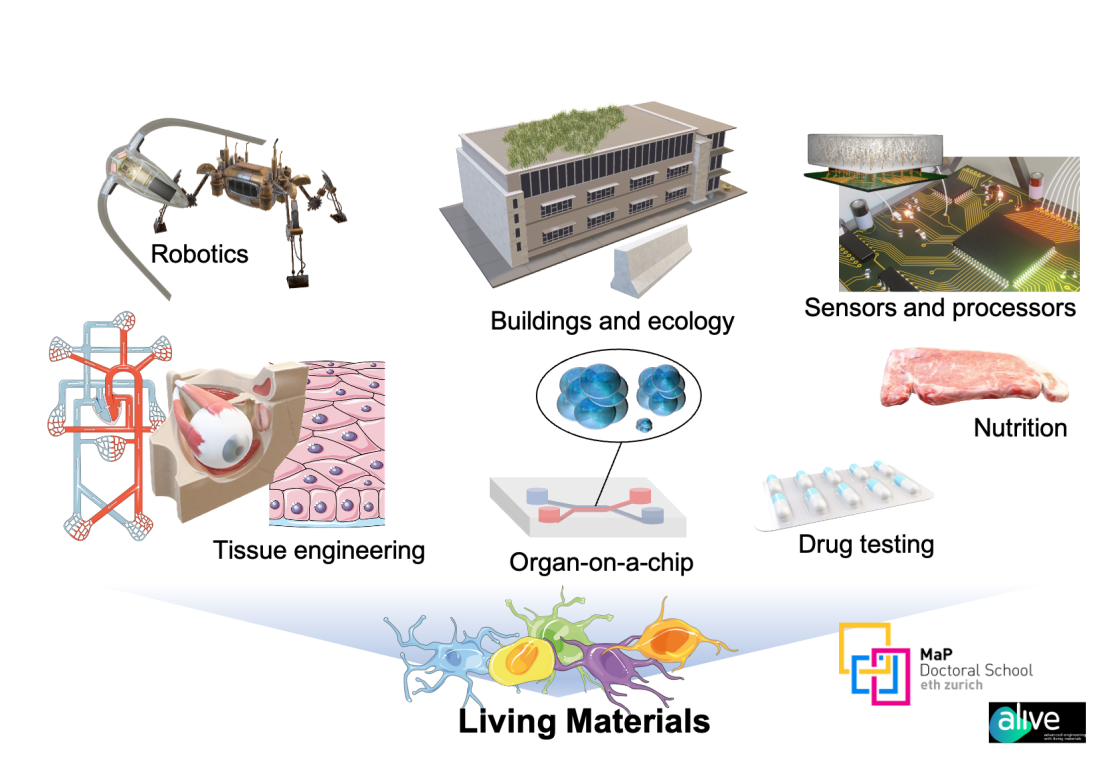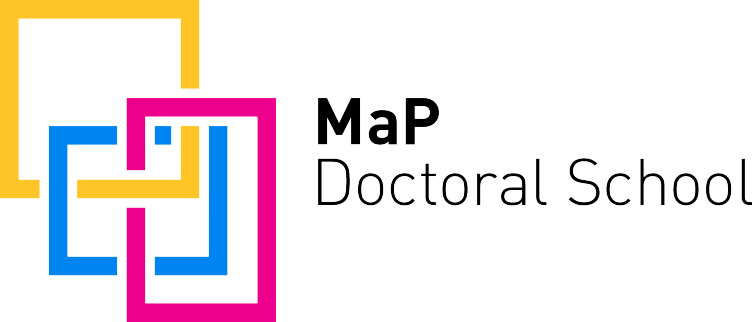MaP Distinguished Lecture Series on Engineering with Living Materials
The 'Engineering with Living Materials Lecture Series' offers insight into state-of-the-art and frontiers in living materials and bio-systems, which are topics of global and future relevance in the field of materials and process engineering.
Mondays, 16.15-18.00 | GLC E 29.2
151-0638-00L MaP Distinguished Lecture Series on Engineering with Living Materials: Course catalogue entry
The lectures are open to all interested participants. No registration is necessary if you are not interested in credit points.
Zoom Link for online attendance: external page https://ethz.zoom.us/j/65691051832

This course is a colloquium involving a selected mix of internationally renowned speakers from academia and industry who present their cutting-edge research in the field of engineered systems using living materials. In particular, the course will cover fundamentals of bioengineering at a multicellular level (biofabrication), as well as examples of manufacturing and application of living cells to engineered systems for medical applications and beyond. Speakers will show how to combine living cells with non-living, synthetic materials to realize bio-hybrid systems to be applied to many fields of human life, ranging from biomedicine to robotics, biosensing, ecology, and architecture. It will be shown how bio-hybrid technologies and cutting-edge engineering techniques can support cell proliferation and even enhance their cell functions. The course will cover materials and approaches for the biofabrication of living tissue, seen as a biomedical model for pathophysiological discovery research, or as transplantable grafts for tissue regeneration. Speakers will illustrate how living species can contribute to ecological approaches in town planning (such as CO2 sequestration), sensing and processor technologies enabled by connective and signaling abilities of cells, and motile systems actuated by contractile cells (bio-hybrid robots). The main learning objective is to learn about: materials and techniques to build intelligent biological systems for future, sustainable societies; mechanisms of cell and tissue programmability; and applications in bio-robotics, communication, sensing technologies, and medical engineering.
Any lecture materials provided are strictly for study purposes only and must not be shared - many thanks.
Participants become acquainted with the state-of-the-art and frontiers in materials science and bioengineering, which is a topic of global and future relevance from the field of materials and process engineering. The self-study of relevant literature and active participation in discussions following presentations by internationally renowned speakers stimulate critical thinking and allow participants to deliberately discuss challenges and opportunities with leading academics and industrial experts and to exchange ideas within an interdisciplinary community.
This course is taught by a selection of internationally renowned speakers from academia and industry working in the field of materials science and biomedical engineering. This lecture series is focusing on the recent trends in engineering with living materials.
Participants should have a background in engineering, materials science, and/or robotics. Primary target audience are MSc and doctoral students. Guests are welcome.
On-site attendance to the lectures is preferred to foster in-person contacts. However, for lectures given by online speakers, a Zoom link to attend remotely will be provided on Moodle.
Ungraded semester performance: To obtain 1 ECTS, students need to: (i) attend 80% of all lectures; (ii) submit a one-page abstract of 3 different lectures. The performance will be assessed with a "Pass/Fail" format. Repetition is only possible after re-enrolling for the course unit.
Previous Editions
For questions and support concerning this course:
- Prof. Xiao-Hua Qin,
- Prof. Robert Katzschmann,
- Dr. Zhidong Zhang,
